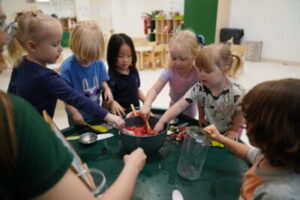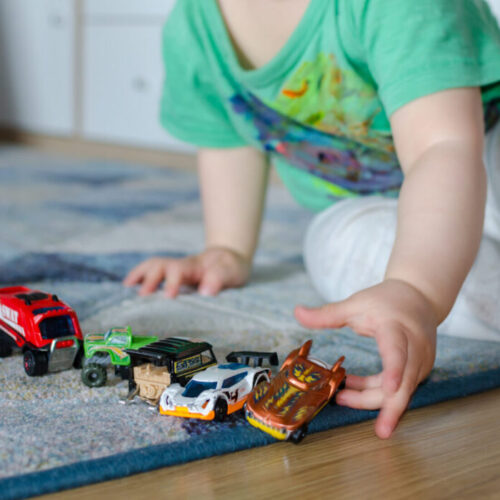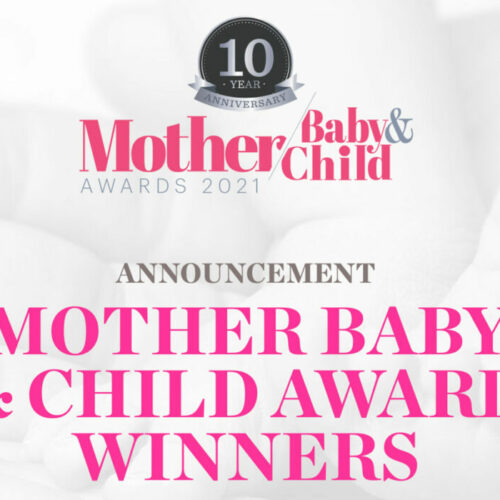Why is it important to integrate mindfulness in early childhood curricula

In this article, we hear from Dibber International Nurseries on how and why mindfulness should be a part of young learners’ lives.
In today’s fast-paced world, where screens capture much of our attention and schedules are jam-packed, cultivating mindfulness in early childhood has become more essential than ever. Mindfulness, which has its roots in ancient practices, involves being fully aware of the present moment. Introducing mindfulness into early childhood education and home environments can significantly impact children’s emotional health, cognitive growth and overall resilience.
Why emphasise mindfulness in early childhood?
Mindfulness provides children with crucial tools to develop self-confidence, manage stress and handle life’s challenges effectively. Teaching mindfulness to young children helps them improve attention, build confidence, navigate stressful situations and face discomfort with resilience. It involves paying attention to their thoughts, emotions and surroundings without trying to alter or control them. This practice empowers children to manage their emotions and reactions healthily, promoting self-regulation and empathy.
Encouraging children to engage in activities that promote mindfulness will support the development of vital executive functions during their formative years. These functions include concentration, attention, memory retention, task management and appropriate social behaviour. As mindfulness enhances these cognitive skills, it lays the foundation for more advanced abilities such as problem-solving, planning, developing empathy and fostering positive relationships.
Benefits of mindfulness in young children
- Helps enhance focus and concentration, improving the ability to stay attentive to tasks and switch between them efficiently
- Encourages thoughtful and strategic responses to challenges
- Boosts the ability to accurately process and retain information
- Develops listening skills and promotes effective verbal and nonverbal communication
- Supports controlled emotional responses to trauma and other experiences, leading to healthier social interactions
- Encourages respect for diverse viewpoints, feelings, and boundaries
- Helps children manage anxiety and stress, promoting relaxation and calmness
- Increases the ability to recognise and understand one’s own emotions
- Reduces excessive worry and anxious thoughts through mindful awareness
- Enhances confidence by promoting a positive self-image and self-acceptance
- Provides strategies for effectively managing emotional highs and lows
- Contributes to a positive life outlook and a higher sense of happiness.
The importance of modelling mindfulness
A great starting point for this journey is for adults to practise mindfulness themselves and lead by example. Children learn from their surroundings, especially from their caregivers. By demonstrating awareness and non-judgment, caregivers can significantly influence their children.
How can adults help?
What are some of the ways you can help your little one with mindfulness?
Articulate and label emotions
Young children often struggle to articulate their feelings. Assisting them with language helps them express what they are experiencing in a way that is understandable, fostering an awareness of their internal emotions. This helps children identify and express their feelings better.
Focus on the senses
Instead of introducing mindfulness as an abstract idea, focus on sensory experiences by engaging children in sensory activities. For instance, they might not understand how listening to ocean waves helps them relax, but over time, they can make the connection.
Build awareness of body and mind
When asked how they feel, younger children might respond with “good” or not know at all. You can guide them in checking in with their bodies and minds by having them do a “body scan,” paying attention to different areas and noting any feelings or sensations they experience.
Integrating mindfulness into classroom routines
Dibber International Nurseries highlight the importance of embedding mindfulness into daily classroom activities, rather than using it only in response to anxiety or disruptive behaviour, making it a natural part of the learning environment. This proactive approach prevents negative associations with mindfulness and positions it as a vital life skill that enhances emotional intelligence and overall well-being.
Mindfulness is crucial in early childhood settings, benefiting educators and children by fostering calmness, emotional regulation, social skills and focus. At Dibber, Engaged Educators practice mindfulness themselves, equipping them to impart these essential skills to young learners and helping them develop a balanced and controlled approach to life.
Based in Norway, Dibber has over 20 years of experience in early childhood education. With more than 600+ schools worldwide, they have expanded their Norwegian roots and Scandinavian curriculum globally, and are poised to make further advancements in the MENA+ region in the coming years.
To know more, visit one of their units in the UAE!
Schedule a tour today by calling: 800-DIBBER or emailing familyrelations@dibber.com.
Image Credit: Dibber International Nurseries











Comments